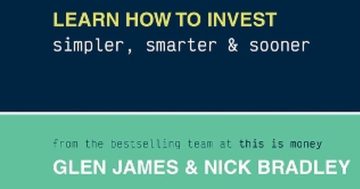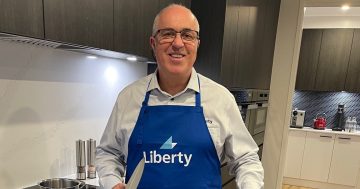Teresa Ghilarducci* says when it comes to the coronavirus pandemic and your retirement accounts, know what you should and should not do.
 Most economists, me included, expect the coronavirus outbreak to cause a recession.
Most economists, me included, expect the coronavirus outbreak to cause a recession.
Since many people made bad financial investment decisions in the last recession, I am writing to remind us what to do and what not to do.
But let me start with two important considerations.
First, pause with gratitude if you have a retirement account — many people do not.
If you don’t have a retirement plan this is a good time to get one.
Second, know that in the last recession, workers who did not lose their jobs and did not have to withdraw from their retirement accounts to pay basic bills were back to where they had been fairly quickly.
People who did not withdraw funds from their retirement accounts and kept saving did better than those who withdrew money for whatever reason.
People who continue to add stock to their retirement accounts may be able to benefit.
Stock market swings can have surprisingly little impact on your wealth if you don’t sell now.
Do stay the course
If you’re considering pulling money out of the market right now, know that this is the absolute worst time to do so.
Buying high and selling low is the biggest mistake individual investors make.
It may look bad now, but it will look worse if you sell at the trough and only buy back in when the market is up 10–20 per cent.
Don’t look at your account balance too often
Studies show that people who check their accounts frequently and trade more frequently tend to buy high and sell low compared to people who rebalance once a year.
Evidence suggests that people who are open-minded and have neurotic traits are especially vulnerable.
Do get a “money” notebook and write down your wealth portfolio allocation
You can’t manage what you can’t measure.
If you have a portfolio goal of, say, 50 per cent stocks, 30 per cent bonds (including annuities), and 20 per cent “other” (like home equity and alternatives), your allocation just shifted.
You are underweighted in stocks.
What is the right allocation?
If you are 20 years from retirement, most of your money should be in stocks.
If you have less time until retirement, be more conservative.
Do consider putting a greater share of future contributions into stock purchases to rebalance your portfolio
Use index funds rather than picking individual stocks or paying for active managers.
Some people have problems with the idea of “passive” investing, since humans have a bias for action.
It is worth considering the advice doctors give patients who test positive for prostate cancer but whose diagnoses do not pose an imminent threat.
Doctors recommend either “watchful waiting” (passive) or “active surveillance” when full-on treatment may be a bigger risk than the cancer itself.
That is my financial advice.
Make your investment protocol somewhere between “watchful waiting” and “active surveillance” — the key is not to leap right into surgery.
Do reconsider your ‘guy’
As in, “I have this guy (sometimes not a guy) who gives me good financial advice. He is a friend of my uncle.”
Many financial advisers have significant conflicts of interest.
Your conflicted financial advisor is not good for you and they are likely not a very good investor themselves.
Evidence suggests they manage their own money poorly.
Most conflicted advisors are charming and extroverted.
They remember your birthday.
But ultimately, they are salespersons.
Get a non-conflicted, fee for service, who accepts fiduciary responsibility.
Do contact your HR department and start contributing to your superannuation at the maximum level.
Don’t add more years to your mortgage if you are refinancing
You want to make sure you are never in a situation where you have to sell stocks to pay a mortgage when you or a family member loses a job, hours, or gig in a recession.
The recession doesn’t have to be as bad as the last one.
I have never said this before in my academic or adult life, but retirement is not our main worry right now.
Your retirement savings should be undergoing some healthy hygiene right now, but not any massive changes if you can avoid them.
Save, don’t trade too much, and don’t panic.
But most of all, do all you can to stay healthy and take care of your family and our community.
Flatten the curve.
* Teresa Ghilarducci is a labour economist and Director of the Schwartz Center for Economic Policy Analysis at The New School. She tweets at @tghilarducci.
This article first appeared at www.forbes.com.











